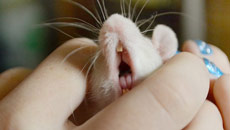Believe it or not, if you are a parent you will have over eight years worth of sleepless nights by the time your child turns 30, a British study has revealed.
And while you might think the disturbed nights ease off as the infant grows up, research shows most lose more sleep when their child is in their teenage years and an adult.
It is mainly because parents are worried about children not coming home or that they could be getting into trouble.
Also, given the current job market, concerns over a child finding, or lacking gainful employment also keep British parents awake at night (38 percent), as well as lack of contact from a child when they move out (32 percent) and concerns over them driving or learning to drive (30 percent), the study added.
However, while independence brings parents a host of fears, a child's early life also causes their parents stress, with 27 percent saying they worry most during the ages of 12-17, losing seven nights sleep a month.
By age 30, a child will have caused their parents 3,096 sleepless nights, equating to over 8.4 years.
While 54 percent of mothers taking part in the survey felt they “worried too much, but could not help it”, only 34 percent of fathers felt they worried excessively.
Jed MacEwan, managing director of www.Ergoflex.co.uk that conducted the study commented: “Having over 8.4 years of sleepless nights equates to a tremendously large amount of sleep to lose for anyone which only increases when parents make the decision to have more than one child.”
“However, as with other forms of stress, rationalising worries and talking about concerns are often the best ways to settle the mind and get off to sleep,” he was quoted as saying in a Daily Mail report.





